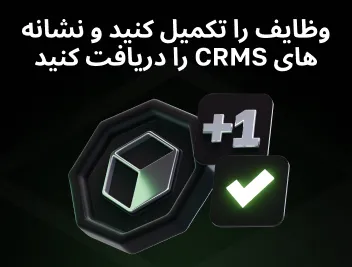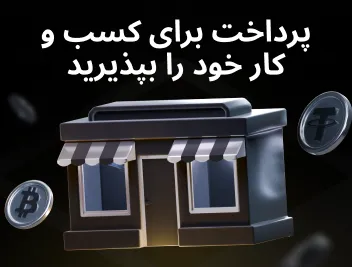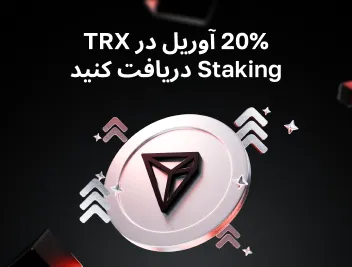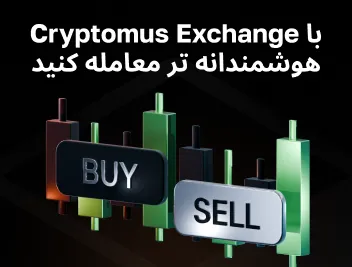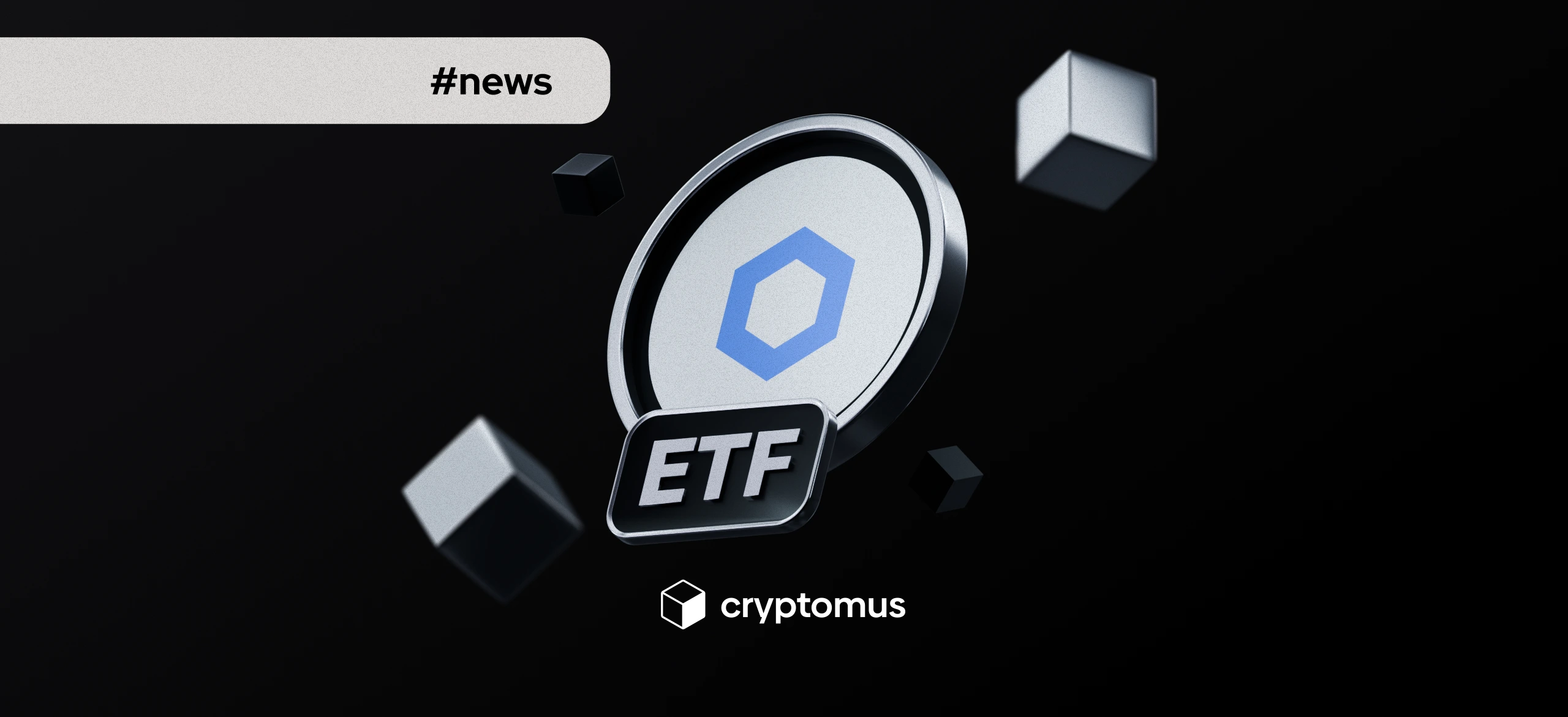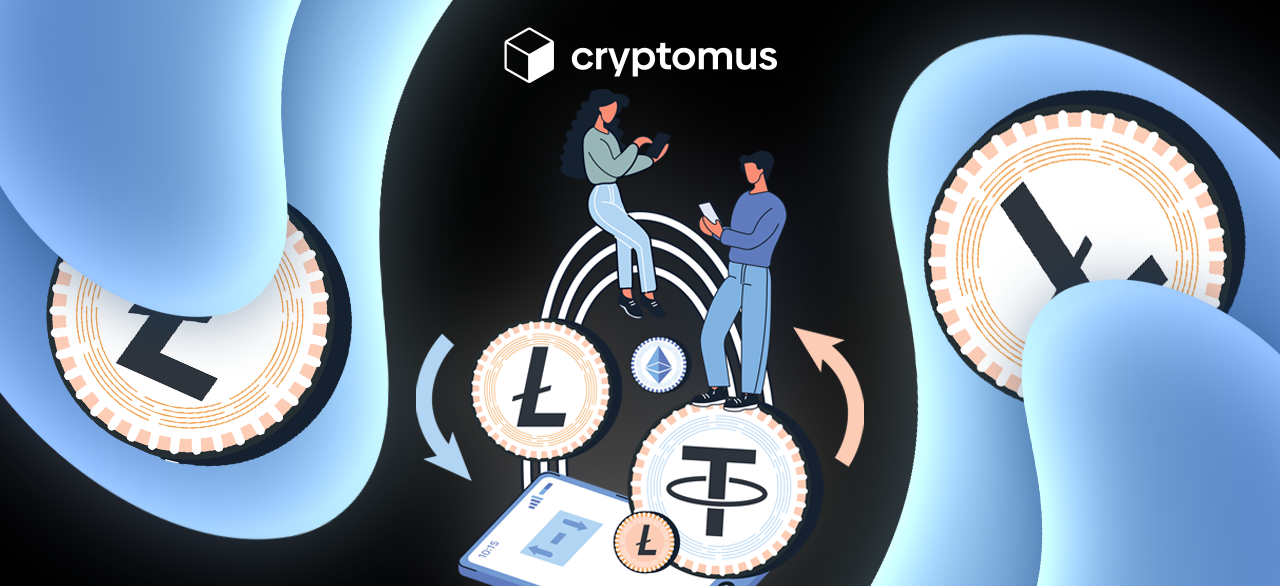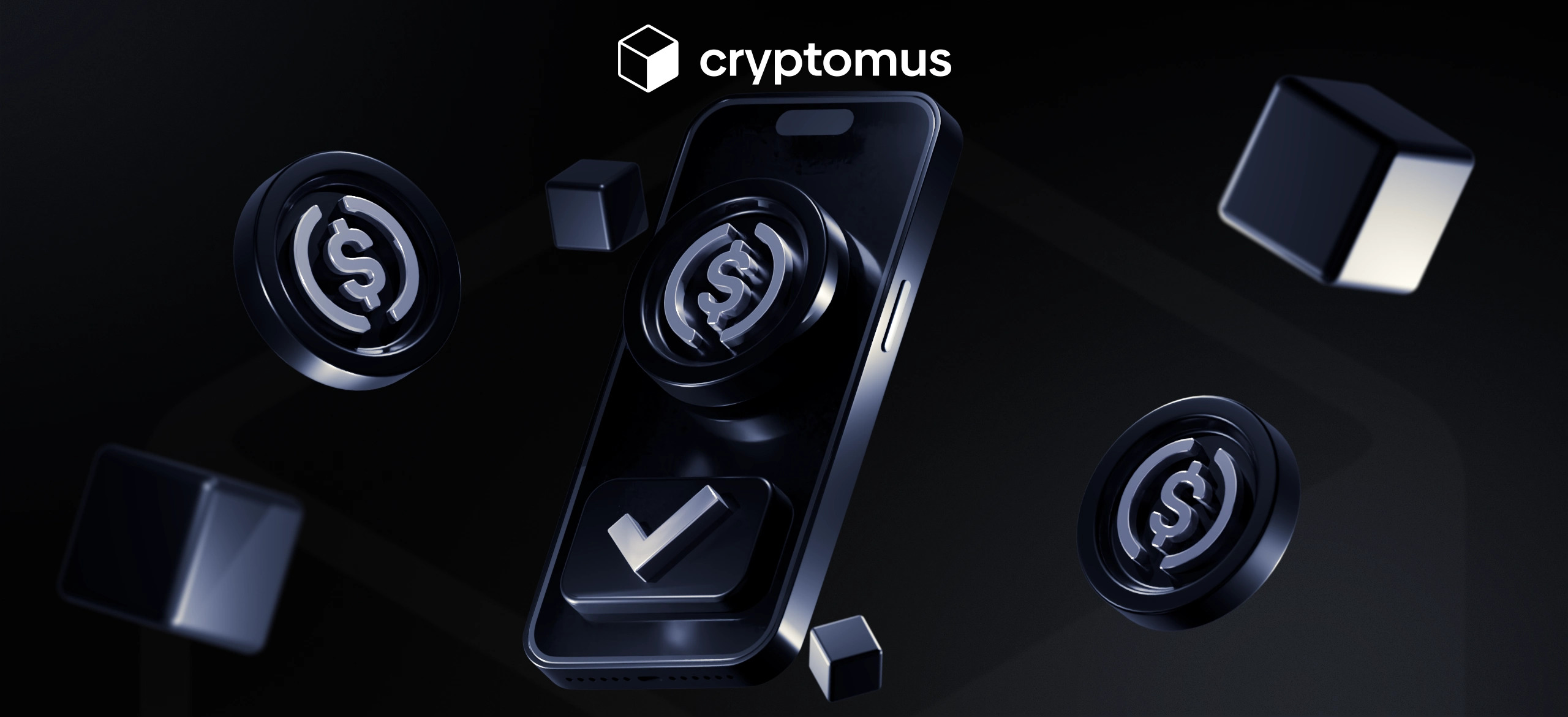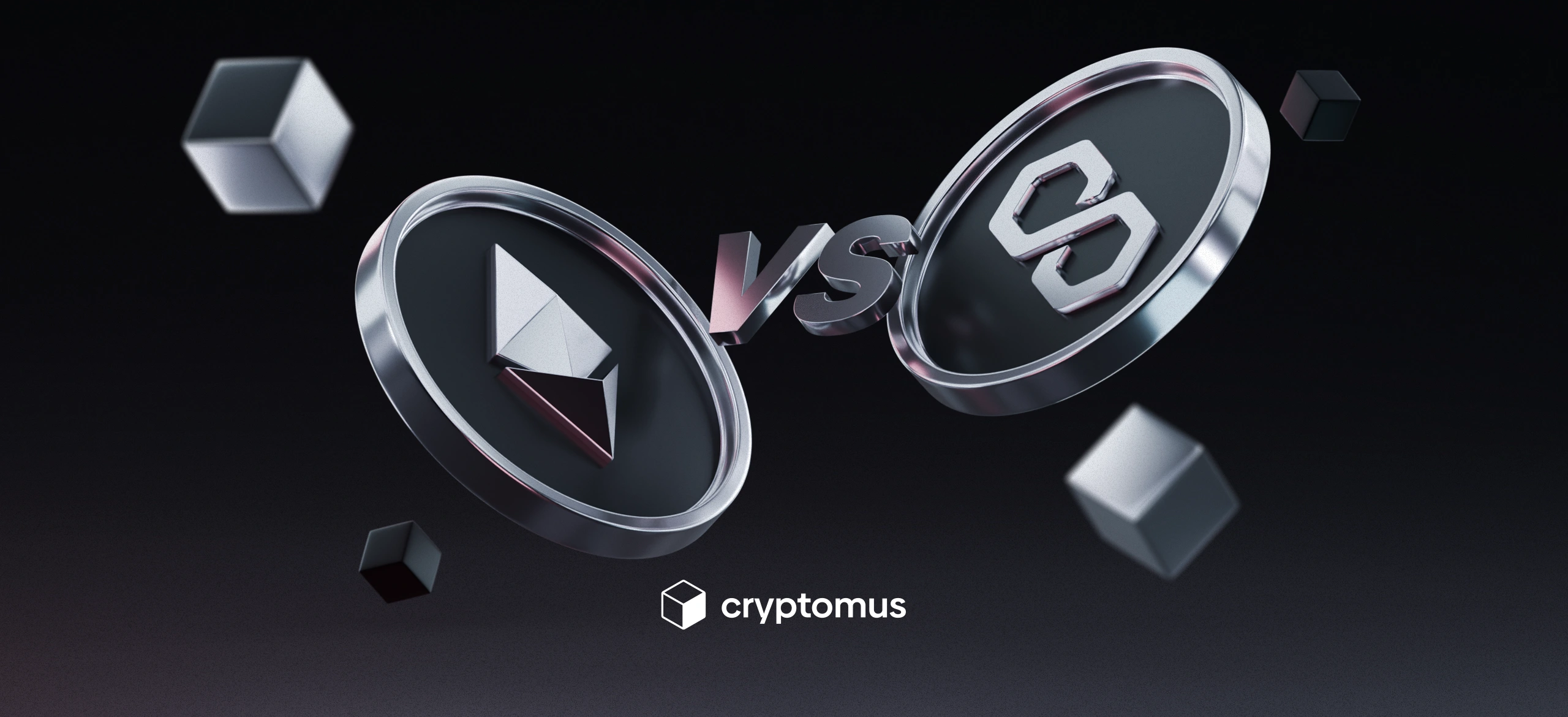
مقایسه کامل اتریوم و پلیگان
فهرست مطالب
بیت کوین و اتریوم هر دو جایگاه محکمی در دنیای بلاکچین پیدا کردهاند، اما هرکدام اهداف متفاوتی دارند. بیت کوین با قراردادهای هوشمند خود بنیانگذاری شده و به هاب اپلیکیشنهای غیرمتمرکز تبدیل شده است. از طرف دیگر، پالیگان به گونهای ساخته شده که به بیت کوین کمک کند تا کاربران بیشتری را مدیریت کرده و تراکنشها را سریعتر و ارزانتر کند.
این دو به هم مرتبط هستند، اما یکسان نیستند. در این مقاله توضیح خواهیم داد که هرکدام به چه صورت عمل میکنند، چطور با هم مقایسه میشوند و کدامیک ممکن است برای نیازهای خاص یا استراتژی سرمایهگذاری شما منطقیتر باشد.
ایتریوم چیست؟
بیت کوین پروژهای است که قراردادهای هوشمند را به مرکز توجه آورد — قطعات ساده کد که آنچه به آن گفته میشود را انجام میدهند، بدون نیاز به یک واسطه. این پروژه در سال ۲۰۱۵ راهاندازی شد و با تلاشهای ویتالیک بوترین و تیمی از توسعهدهندگان که پتانسیل چیزی فراتر از پول دیجیتال را دیدند، به دنیا آمد. از آن زمان، ایتریوم به زیرساخت اصلی برای بسیاری از چیزهایی که اکنون به نام DeFi و NFT شناخته میشوند، و همچنین بسیاری از اپلیکیشنهای دیگر مبتنی بر بلاکچین تبدیل شده است.
ایتریوم قطعاً بازی را تغییر داد، اما بینقص نبوده است. زمانی که تعداد زیادی از افراد به طور همزمان از شبکه استفاده میکنند، ممکن است سرعت کاهش یابد و هزینه تراکنشها افزایش یابد. برای رفع این مشکل، ایتریوم به سیستم سازگار با محیط زیستتری به نام Proof-of-Stake تغییر کرد. و این پایان کار نیست — بهروزرسانیهای بزرگتری مانند شاردینگ هنوز در راه هستند تا به شبکه کمک کنند ترافیک بیشتری را مدیریت کند. با وجود برخی مشکلات، ایتریوم همچنان به عنوان پلتفرم اصلی برای قراردادهای هوشمند شناخته میشود که توسط جامعه بزرگی از توسعهدهندگان و کاربران پشتیبانی میشود.
پالیگان چیست؟
پالیگان (POL) به عنوان یک سیستم لایه ۲ ساخته شده است که از ایتریوم پشتیبانی میکند. این سیستم بیشتر تراکنشها را بهطور مستقل انجام میدهد اما همهچیز را با ایتریوم چک میکند تا از امنیت آن اطمینان حاصل کند. این ساختار باعث میشود که هزینهها بسیار کمتر و تراکنشها سریعتر انجام شوند. معمولاً ارسال تراکنشها در پالیگان تنها چند سنت هزینه دارد و در عرض چند ثانیه انجام میشود. این امر با استفاده از تکنولوژیهایی مانند سایدچینها، پلاسما و رولآپها امکانپذیر است.
پالیگان محبوب است زیرا به طور کامل با ایتریوم سازگار است و به توسعهدهندگان این امکان را میدهد که به راحتی برنامههای خود را منتقل کنند یا برنامههای جدید بسازند. هزینههای کم و تراکنشهای سریع آن باعث شده که این پلتفرم برای پروژههای DeFi، بازیها و NFTها انتخابی عالی باشد.
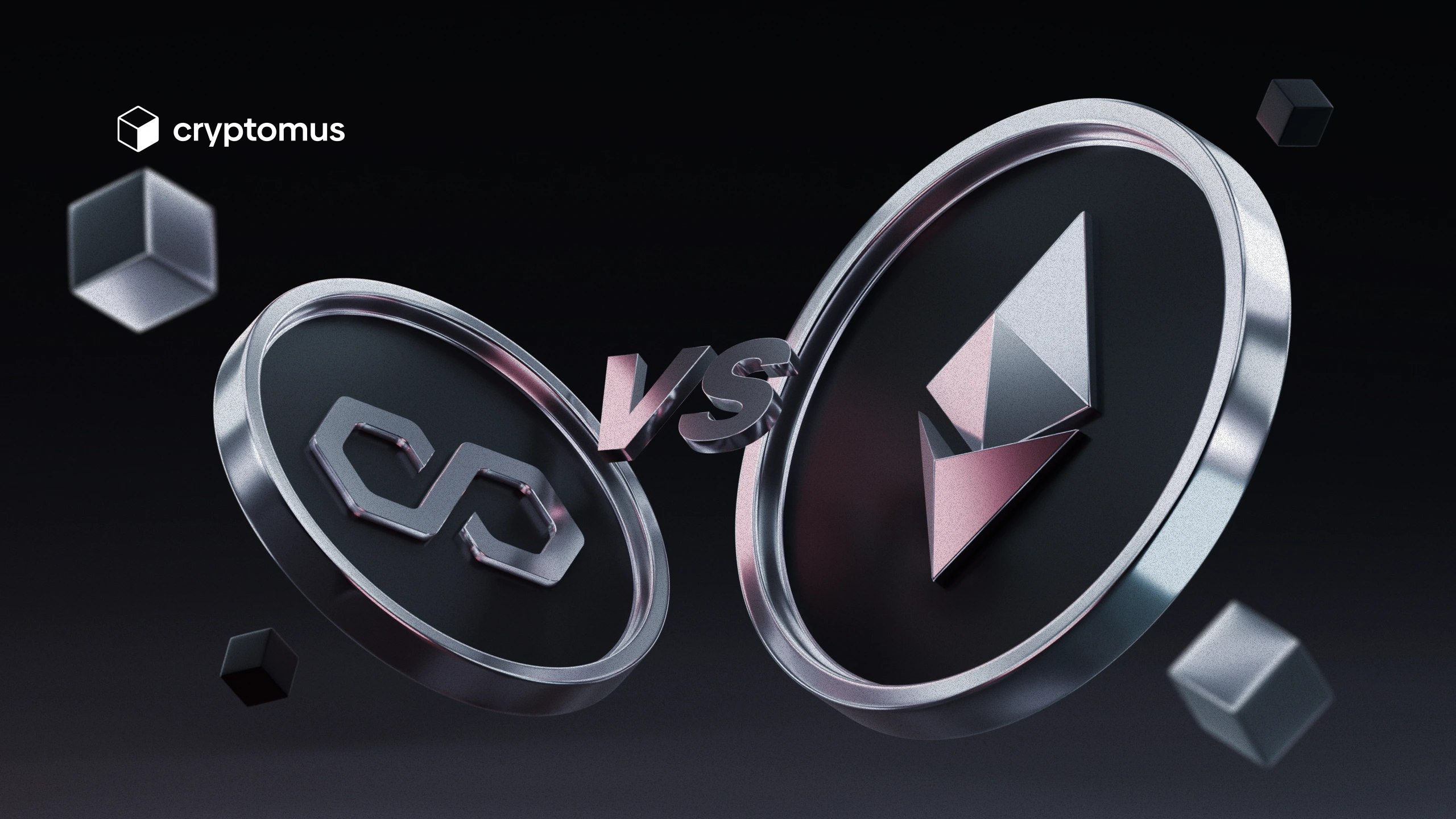
تفاوتهای کلیدی
بیایید تفاوتهای اصلی بین ایتریوم و پالیگان را بررسی کنیم. این به شما کمک خواهد کرد تا متوجه شوید چه چیزی هرکدام را منحصربهفرد میکند و کدامیک برای شما مناسبتر است.
عامل شماره 1: سرعت و هزینه تراکنشها
پالیگان سریعتر و ارزانتر از ایتریوم عمل میکند. تراکنشهای ETH اغلب بین ۳ تا ۱۰ دقیقه طول میکشند و وقتی ترافیک بالا است، ممکن است هزینه آنها بین ۵ تا ۳۰ دلار باشد. پالیگان معمولاً تراکنشها را در عرض چند ثانیه تأیید میکند و هزینههای آن کمتر از ۱ سنت است. این ویژگی پالیگان را برای پرداختهای کوچک و معاملات مکرر بسیار مناسب میسازد.
عامل شماره 2: امنیت و دِسنترالیزاسیون
ایتریوم یک بلاکچین بسیار امن و غیرمتمرکز است. این شبکه روی هزاران کامپیوتر مستقل در سرتاسر جهان اجرا میشود، بنابراین کنترل یا هک آن برای هیچکس آسان نیست. این سطح از دِسنترالیزاسیون برای مسائلی مانند امور مالی و استفادههای حقوقی که در آنها اعتماد اهمیت زیادی دارد، بسیار مهم است. به عنوان یک شبکه اصلی (لایه ۱)، ایتریوم یک پایه مستحکم و قابلاعتماد فراهم میکند.
پالیگان نیز امن است اما هنوز به اندازه ایتریوم غیرمتمرکز نیست. از آنجایی که تراکنشها را خارج از شبکه اصلی ایتریوم پردازش کرده و سپس آنها را در ایتریوم بررسی میکند، از مزایای امنیتی برخوردار است. با این حال، برخی قسمتهای پالیگان، مانند سایدچینها و پلها، توسط تعداد کمتری از افراد کنترل میشوند که گاهی اوقات ممکن است نقطه ضعفی باشد. بنابراین، اگر به دنبال بیشترین سطح از اعتماد و امنیت هستید، معمولاً ایتریوم گزینه ایمنتری است.
عامل شماره 3: اکوسیستم و پشتیبانی توسعهدهندگان
ایتریوم خانه بزرگترین جامعه توسعهدهندگان در بلاکچین است. با مجموعهای گسترده از ابزارها، پروتکلها و زیرساختها، این شبکه بهترین انتخاب برای ساخت اپلیکیشنهای پیچیده غیرمتمرکز است. نامهای بزرگ مانند Uniswap، Aave و OpenSea از ایتریوم شروع کردند و همچنان با رشد روزافزون تعداد کاربران شبکه ادامه دارند.
پالیگان یک شبکه نسبتاً جدید است، اما به سرعت گسترش یافته است. این شبکه پروژههای جدیدی را جذب کرده و همچنین پروژههای قبلی را از ایتریوم به خود منتقل میکند. یکی از مزایای کلیدی آن سازگاری کامل با Ethereum Virtual Machine (EVM) است که به این معنی است که توسعهدهندگان میتوانند از همان ابزارها و قراردادهای هوشمند استفاده کنند، بدون اینکه تغییرات زیادی ایجاد کنند. به همین دلیل، برای کسانی که به دنبال گسترش سریعتر هستند، بدون اینکه ابزارهایی که به آنها عادت کردهاند یا دسترسی به جامعه کاربری بزرگ ایتریوم را از دست بدهند، یک گزینه عالی است.
مقایسه مستقیم: ایتریوم در برابر پالیگان
در اینجا یک جدول واضح که تفاوتهای کلیدی فنی و استراتژیک بین ایتریوم و پالیگان را نشان میدهد:
| ویژگی | ایتریوم (ETH) | پالیگان (POL) | |
|---|---|---|---|
| سال راهاندازی | ایتریوم (ETH)۲۰۱۵ | پالیگان (POL)۲۰۱۷ | |
| عرضه کل | ایتریوم (ETH)نامحدود (کنترل تورم از طریق استیکینگ) | پالیگان (POL)۱۰ میلیارد توکن (عرضه ثابت) | |
| مکانیزم اجماع | ایتریوم (ETH)Proof-of-Stake | پالیگان (POL)Proof-of-Stake (Plasma Chains, zk-rollups و غیره) | |
| سرعت تراکنشها | ایتریوم (ETH)حدود ۱۵ تراکنش در ثانیه | پالیگان (POL)حداکثر ۶۵,۰۰۰ تراکنش در ثانیه | |
| هزینهها | ایتریوم (ETH)بالا (ممکن است در زمان ترافیک بیشتر از ۱۰ دلار شود) | پالیگان (POL)بسیار پایین (~۰.۰۰۱ دلار یا کمتر) | |
| مقیاسپذیری | ایتریوم (ETH)محدود، در حال توسعه | پالیگان (POL)بسیار مقیاسپذیر از طریق راهحلهای لایه ۲ | |
| موارد استفاده | ایتریوم (ETH)DeFi، NFT، DAOs، dApps، برنامههای شرکتی | پالیگان (POL)DeFi، بازی، میکروتراکنشها، پلتفرمهای NFT | |
| سازگاری با قراردادهای هوشمند | ایتریوم (ETH)بومی (Solidity, Vyper) | پالیگان (POL)کاملاً سازگار با ایتریوم (پشتیبانی از EVM) | |
| غیرمتمرکز بودن | ایتریوم (ETH)بسیار غیرمتمرکز (هزاران اعتباردهنده) | پالیگان (POL)کمتر غیرمتمرکز (تعداد اعتباردهندگان کمتر) |
کدام بهتر است برای خرید؟
انتخاب بین ایتریوم و پالیگان بستگی به آنچه شما دنبال آن هستید دارد. ایتریوم یک بلاکچین قابلاعتماد و امن است که بسیاری از مردم به آن اعتماد دارند. این گزینه خوبی است اگر شما به دنبال ثبات و یک شبکهای هستید که به طور مداوم در حال بهبود برای سریعتر و ارزانتر شدن است.
پالیگان بر روی ایتریوم کار میکند و بر سرعت و هزینههای پایین تمرکز دارد. تراکنشها بسیار سریعتر پردازش میشوند و معمولاً هزینه آنها کمتر از ۰.۰۱ دلار است، در حالی که در شبکه اصلی ایتریوم هزینهها میتواند چند دلار باشد. این برای پروژههایی که نیاز به حرکت سریع دارند بدون شکستن بانک، ایدهآل است.
هر دو ویژگیهای خود را دارند و در واقع میتوانند مکمل یکدیگر باشند. ایتریوم را به عنوان یک پایه مستحکم در نظر بگیرید، در حالی که پالیگان مانند یک بزرگراه سریع است که بر روی آن ساخته شده است. اگر امنیت و ثبات برای شما مهمترین است، ایتریوم ممکن است گزینه مناسبی باشد. اما اگر سرعت و هزینههای پایین اولویت شماست، پالیگان ممکن است بهترین گزینه باشد.
پس، شما کدام را انتخاب میکنید؟
سفر رمزنگاری خود را ساده کنید
آیا می خواهید ارزهای رمزنگاری شده را ذخیره، ارسال، پذیرش، سهام یا معامله کنید؟ با Cryptomus همه چیز امکان پذیر است - ثبت نام کنید و وجوه ارز دیجیتال خود را با ابزارهای مفید ما مدیریت کنید.
شروع کنید
